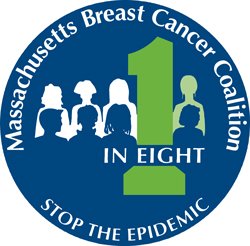Massachusetts Breast Cancer Coalition recently submitted the following testimony to the Joint Committee on Consumer Protection & Professional Licensure. We invite you to join us in supporting H.939 An Act for Massachusetts Toxic Free Kids and S.207 An Act Relative to Toxic Free Kids by clicking here.
Dear Chair Chan and Chair Moran,
I am writing on behalf of Massachusetts Breast Cancer Coalition (MBCC) in support of H.939 An Act for Massachusetts Toxic Free Kids and S.207 An Act Relative to Toxic Free Kids; two bills that attempt to protect and inform consumers, especially children, on the toxic chemicals that can be found in children’s products.
The term “toxic chemicals” refers to chemicals that are recognized as carcinogens, mutagens and reproductive toxins; bioaccumulative and toxic chemicals; or endocrine disruptors.
On a biennial basis, the Department of Environmental Protection will submit a report on the toxic chemicals in children’s products that will be made available to the public. This communication is key to preventing further childhood illness — the public must be informed of the toxic chemicals
which could endanger their children.
Massachusetts would not be alone in this pursuit to protect our children; other states such as Vermont, Oregon, New York, Washington, and Maine have all passed similar legislation to disclose chemicals of concern regarding children’s products.
Further, as H.939 provides, if certain chemicals are found to be classified as dangerous by the Toxic Use Reduction Institute, Science Advisory Board, and Administrative Council, they will be placed on the “dangerous chemicals in children’s products list.”
This list will include the following eight chemicals and one chemical class:
- Tris phosphate
- Benzene
- Lead and compounds (inorganic)
- Mercury and mercury compounds, including methyl 46 mercury
- Formaldehyde
- Asbestos
- Arsenic and arsenic compounds including arsenic trioxide (CASRN 1327-53-3) 51 and dimethyl arsenic (CASRN 75-60-5)
- Cadmium
- Any chemicals in the class of per- or polyfluoroalkyl substances.
H.939 will prohibit the sale and distribution of children’s products that contain chemicals found within this dangerous chemicals list. Both California and New York State have taken the initiative to adopt legislation that bans chemicals in products that pose the highest risk to children’s health.
MBCC is especially concerned about how exposure to chemicals in the class of per- or polyfluoroalkyl substances (PFAS) can alter mammary gland development and may increase the risk of breast cancer later in life.
Other health effects include increased cholesterol levels, changes in liver enzymes, decreased vaccine response in children, increased risk of high blood pressure or pre-eclampsia in pregnant women, decreases in infant birth weights, and an increased risk of kidney or testicular cancer.
Without the disclosures that S.207 and H.939 require and without the additional step to ban dangerous chemicals H.939 secures, our children are knowingly being put in danger. It is of the upmost importance that the safety of our children is prioritized.
Thank you,

Cheryl Osimo
Executive Director
